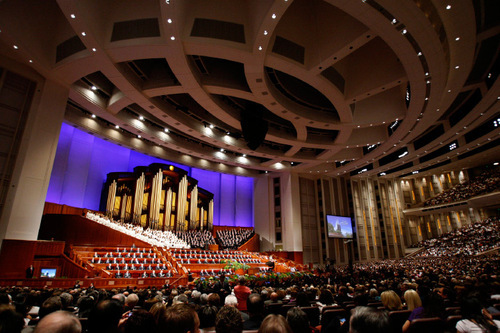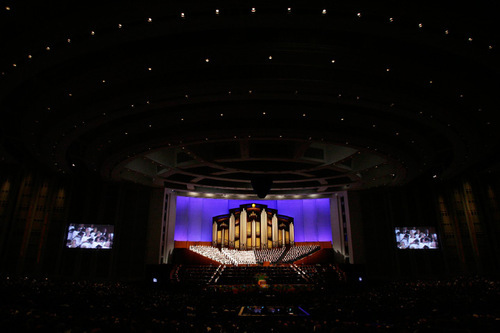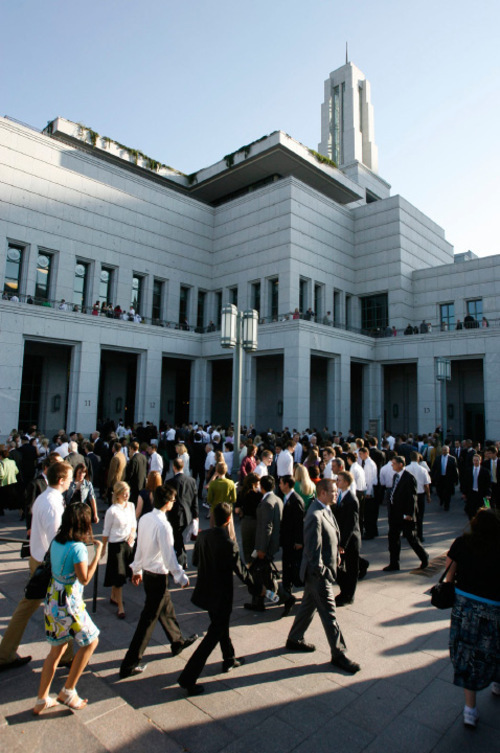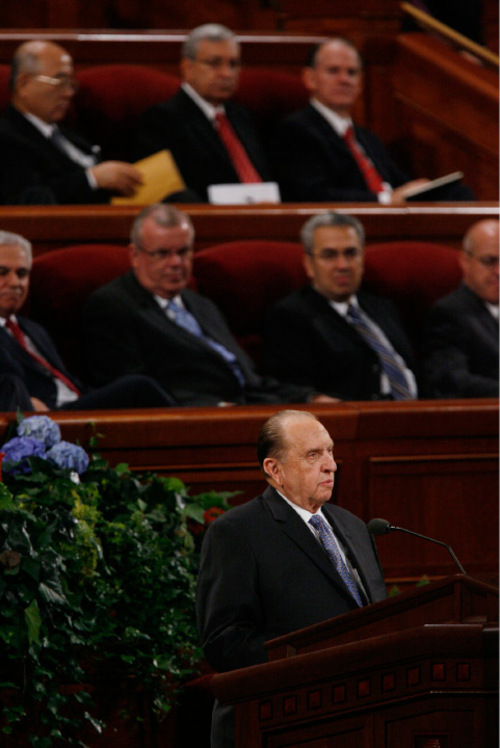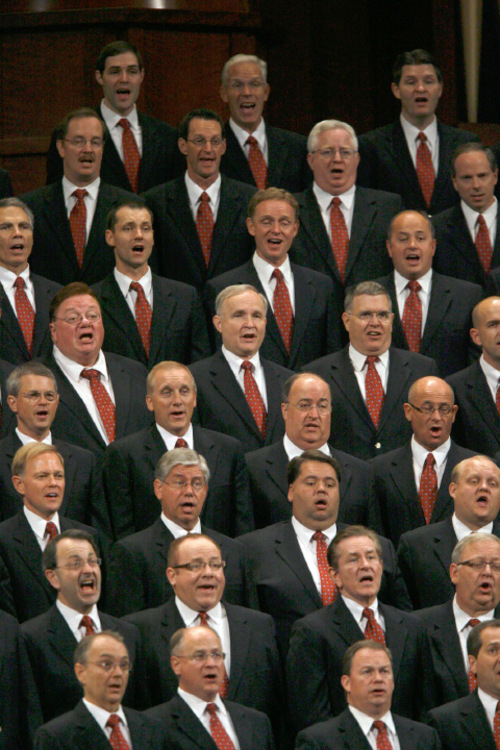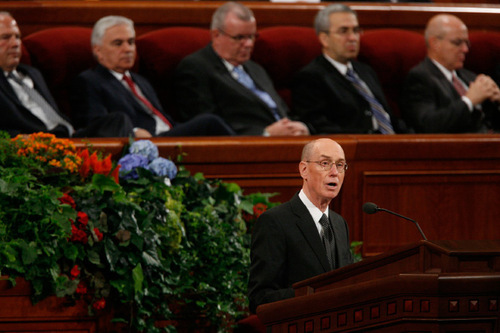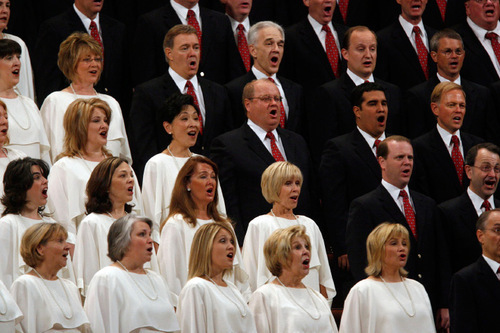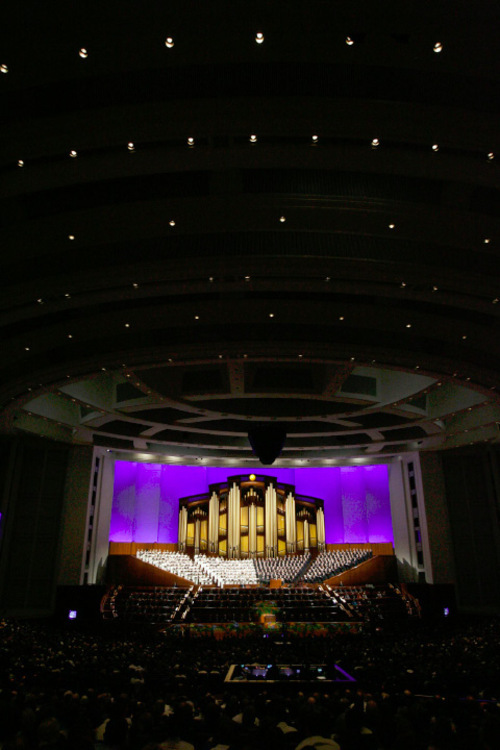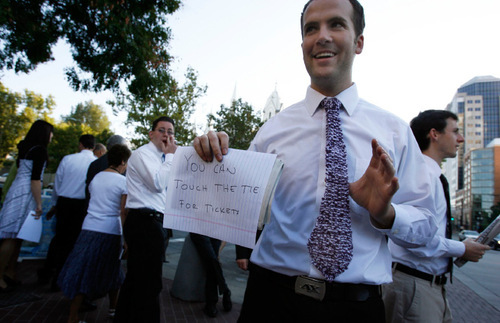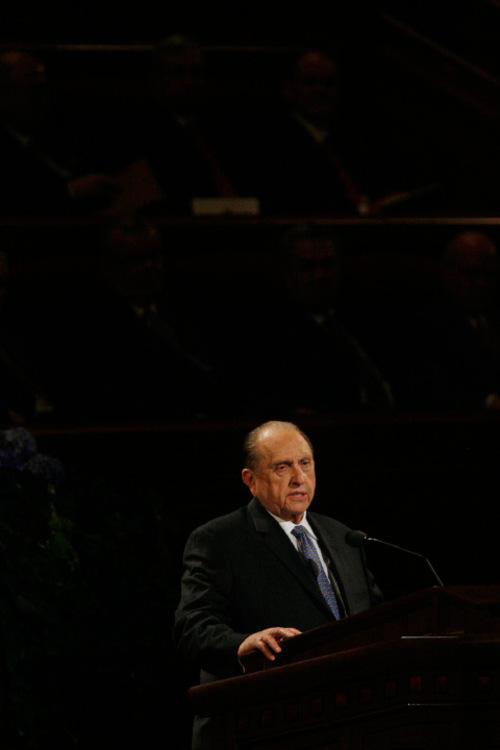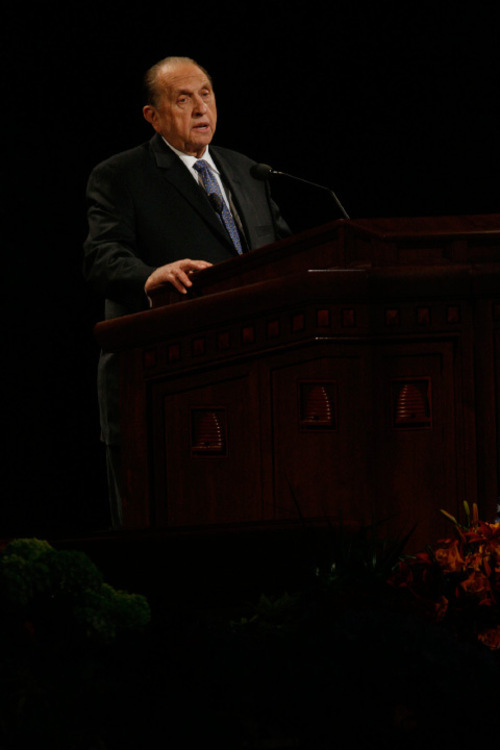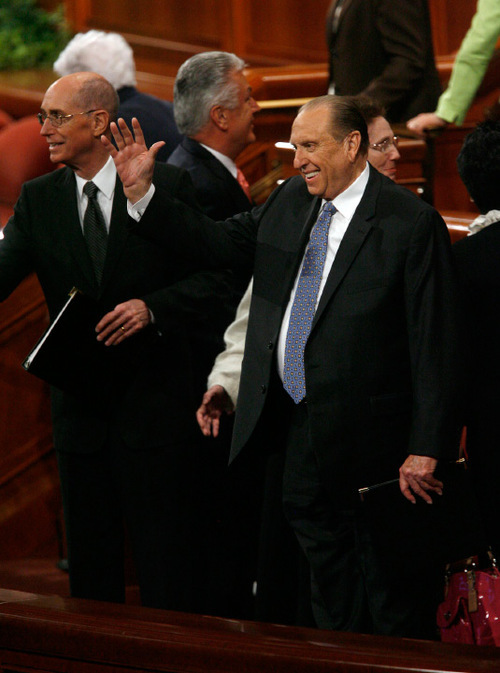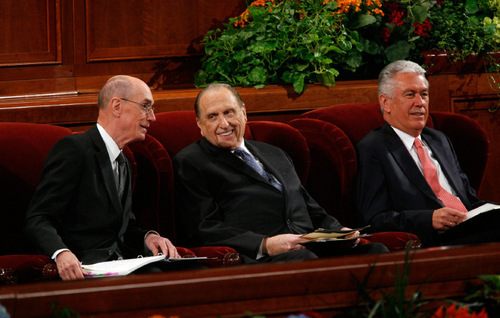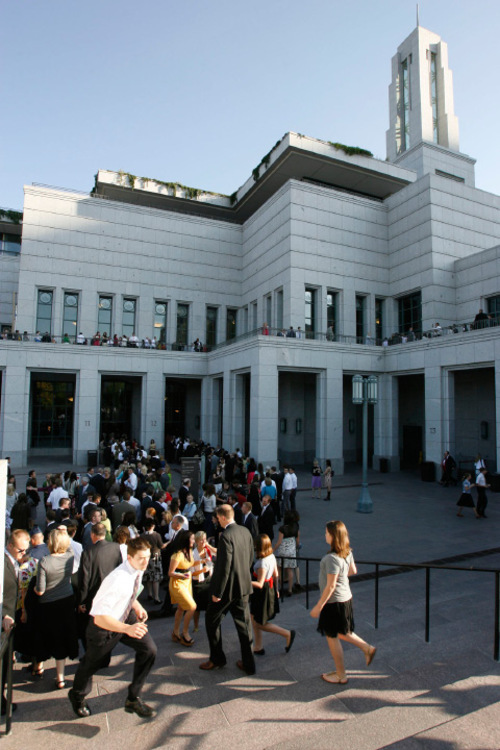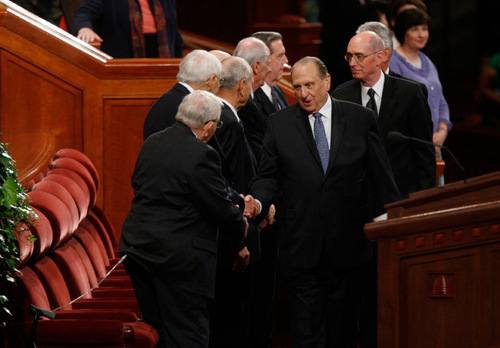This is an archived article that was published on sltrib.com in 2010, and information in the article may be outdated. It is provided only for personal research purposes and may not be reprinted.
Despite an impressive number of men and women preaching the Mormon gospel across the globe, the Utah-based Church of Jesus Christ of Latter-day Saints needs even more missionaries, several speakers said on the first day of the 180th LDS General Conference.
A two-year mission is a universal expectation for every "worthy, able young man,"President Thomas S. Monson said Saturday morning, speaking to more than 20,000 Mormons in the LDS Conference Center in downtown Salt Lake City and millions more watching around the globe via satellite.
Young women don't have the same obligation to serve full-time, but can make "a valuable contribution as missionaries," Monson said. "We welcome your service."
And to retired couples, the LDS leader said, "we need many, many more senior couples."
Continuing the emphasis on missionary work during the evening's all-male priesthood session, Russell M. Nelson of the Quorum of Twelve Apostles asked all full-time missionaries and mission presidents to stand up wherever they were, while a choir from the LDS Missionary Training Center in Provo provided the session's music.
Nelson then repeated Monson's message, saying, "We need more missionaries." He mentioned that his large Mormon family had so far produced 49 such missionaries and encouraged every member to share the faith with his neighbors, friends and Internet connections.
The push for more missionaries may reflect an awareness of the church's shrinking proselytizing force, which is down to about 52,000 from a high of 62,000 in the mid-1990s. The decline is due in part to the LDS Church "raising the bar" on missionary qualifications in 2002, LDS spokesman Scott Trotter said in February.
But, Trotter said, "the primary reason for changes in missionary numbers is the fluctuating population of available missionary-age members."
Other speakers Saturday discussed the need for integrity, importance of choice and responsibility, the value of faith, seeking the Holy Spirit, spiritual healing and simplicity.
In a speech about the dangers of pride, Dieter F. Uchtdorf called the lack of civility in sports "embarrassing."
"I have watched sports fans vilify and demonize their rivals," said Uchtdorf, second counselor in the First Presidency during the priesthood session. "They look for any flaw and magnify it. They justify their hatred with broad generalizations and apply them to everyone associated with the other team. When ill-fortune afflicts their rival, they rejoice."
Unfortunately, he said, too often "the same kind of attitude and behavior spill over into the public discourse of politics, ethnicity, and religion."
Apostle Quentin L. Cook defended the LDS Church's political involvement in what it considers "moral" issues.
"All voices need to be heard in the public square. Neither religious nor secular voices should be silenced," Cook said. "Furthermore, we should not expect that because some of our views emanate from religious principles, they will automatically be accepted or given preferential treatment. But it is also clear that such views and values are entitled to be considered on their merits."
The moral foundation of the LDS Church's teachings on the family can be a "light to the world and a unifying force for both morality and faith in Jesus Christ," he said.
Cook urged the assembled Saints to protect families by joining with all people of good will in and out of the church "to preserve light, hope and morality in our communities."
In his sermon, Claudio R.M. Costa of the First Quorum of Seventy reviewed a famous — and at the time controversial — 1980 speech titled "Fourteen Fundamentals of Following the Prophet." It was given at Brigham Young University by the late Ezra Taft Benson, an LDS apostle who later became the church's prophet.
Some saw the speech as an attack on independent thought and an effort to make Mormons more passive in their devotion to LDS leaders.
To some members, Benson, former secretary of agriculture under Eisenhower and a proponent of the John Birch Society, was a polarizing figure. His comments about the appropriateness of a prophet entering the civic arena worried some that he would someday use his position as LDS leader to promote right-wing causes.
After Benson ascended to the church presidency in 1985, however, he never spoke about political issues, choosing instead to focus on the Book of Mormon and other LDS teachings.
Benson's words continue to hold power for Costa, who joined the LDS Church as a young man and continues to pledge his devotion to Monson, who is considered a "prophet, seer and revelator" to the nearly 14 million Mormons worldwide. In the afternoon session, Kevin R. Duncan, also of the First Quorum of Seventy, similarly stressed the importance of following a prophet and repeated Benson's 14 points.
"What the prophets teach may, to some, seem outdated, unpopular or even impossible," Duncan said. "But God is a God of order and [he] has established [this prophetic] system whereby we can know his will."The conference continues today.
New temples announced
Church leaders announced plans to build five new temples:
Hartford, Conn.
Indianapolis, Ind.
Tijuana, Mexico
Urdaneta, Philippines
Lisbon, Portugal
The new temples will be the Utah-based church's first in Portugal, Indiana and Connecticut. The Urdaneta temple will be the church's third in the Philippines and the Tijuana temple will be Mexico's 13th LDS temple. There are 134 operating temples worldwide, seven under construction and, with today's announcement, 16 temples announced.


